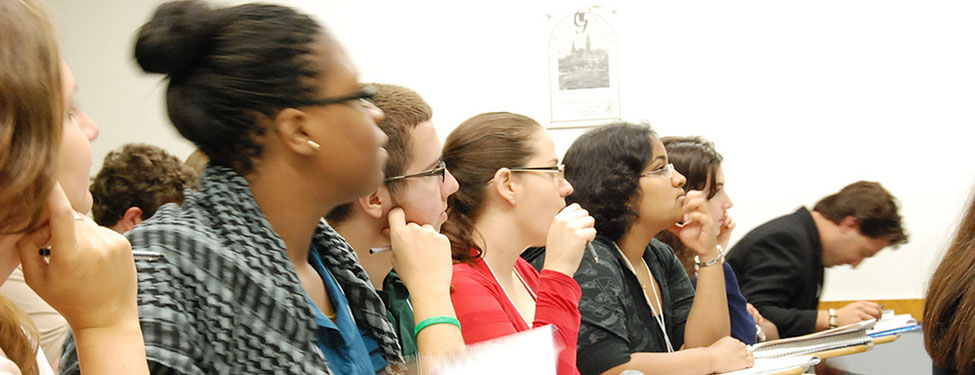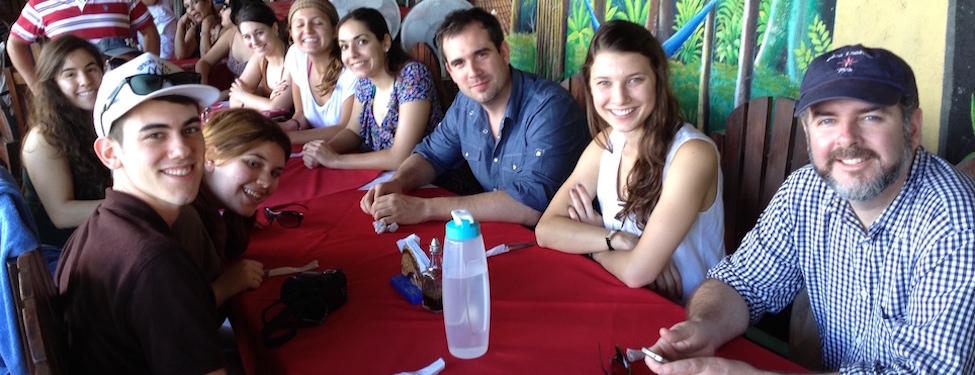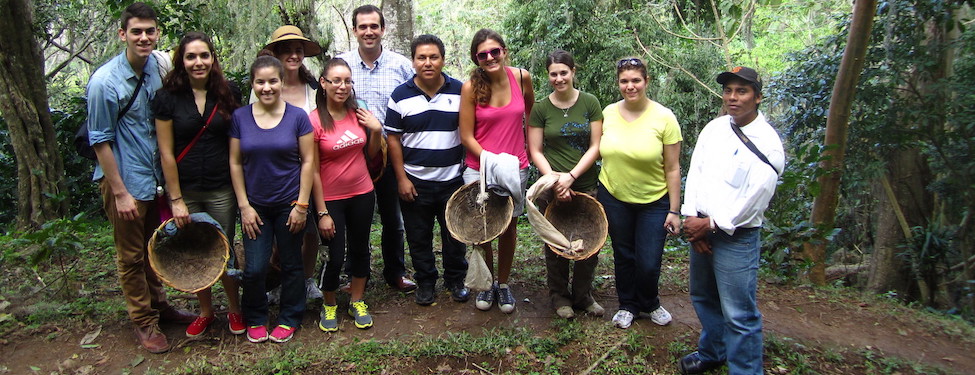IIHA Undergraduate Programs

The Humanitarian Studies Program provides students with the technical knowledge and analytical tools necessary to examine and critique a wide range of humanitarian activities, including food aid, water and sanitation programming, medical assistance, and refugee settlements. The combination of rigorous interdisciplinary coursework and experiential learning opportunities prepare students for a host of graduate studies and careers, such as disaster relief, global public health, human rights, and international law. Additionally, the IIHA’s New York City location provides students with exposure to various United Nations Agencies, the US Mission to the UN, international NGOs, and prominent research institutions.
Explore our programs and our undergraduate HUST community:
Humanitarian Studies Major and Minor
Learning Goals
Summer Session
Internships
Humanitarian Student Union
Apply
Humanitarian Studies Major and Minor
The Humanitarian Studies Programs offers both a Major and Minor track. The course of study, outlined below, balances the theoretical examination of key humanitarian issues with opportunities for practical application exercises, specifically through the Evolution of Development and Humanitarian Aid Systems (HUST 3600) and Internship Seminar (HUST 4800).
Learning Goals

Upon completion of the undergraduate humanitarian studies programs, students will be able to:
- Demonstrate knowledge and understanding of the actors and actions in international responses to humanitarian crises;
- Employ a wide range of disciplines and case studies to examine complex humanitarian emergencies, including natural disaster, famine, war, and pandemic disease;
- Recognize the value of different kinds of knowledge (including both academic and experiential) in formulating appropriate responses to humanitarian crises;
- Critically evaluate the way in which humanitarian interventions are understood and assessed, specifically contrasting the differences between effectiveness, efficiency, outcome, and impact.
Our mission for students in the Humanitarian Studies Program at Fordham extends beyond simply satisfying the course requirements for the major or minor, and the IIHA and their advisor will support them in a number of ways. Students are encouraged to:
- Participate in the life of the humanitarian community at Fordham. Examining contemporary humanitarian issues with their peers through debates, clubs and other activities is an important part of their humanitarian education;
- Cultivate an in-depth knowledge of a specific area of humanitarian assistance through their elective choices, their internship, and - if in the Major - their thesis;
- Consider their professional development and their range of career options while making use of the IIHA’s relationships with practitioners as well as Fordham’s location in New York City.
Summer Session

The Humanitarian Studies Undergraduate Program offers two of its courses during Fordham’s Summer Session: Introduction to Humanitarian Action: Theory and Practice and the Foreign Service Program. Each course is 4 credits and can be applied to either the Major or Minor. Students can also enroll in a one-credit internship course, taking advantage of internships with world-renowned humanitarian organizations in the city.
The courses are offered during the first and second session, respectively, and take place at the Lincoln Center Campus. Students visiting from other colleges and universities can also enroll in the courses.
Please visit the Fordham Summer Session page for more information on enrollment.
Internships
The IIHA serves as a support for internship placements, working closely with students to help with resumes, cover letters, and establishing connections with various organizations. Priority is given to those students enrolled in the Internship Seminar, but all students are encouraged to take advantage of the IIHA’s available resources. Students should generally begin the application process approximately two months before they wish to begin their internship. Current and past placements include:
- Action Against Hunger (ACF)
- Aid for AIDS
- American Red Cross
- Catholic Medical Mission Board (CMMB)
- Catholic Worker Concern Worldwide
- Covenant House
- Equality Now
- Girl Rising
- Global Nomads Group
- Global Poverty Project (GPP)
- Human Rights Watch (HRW)
- Immigration Equality
- International Legal Foundation
- International Rescue Committee (IRC)
- New York City Office of Emergency Management NGO
- Working Group on Food and Hunger at the United Nations
- Physicians for Human Rights
- United Nations Department of Public Information (UNDPI)
- United Nations World Food Programme (WFP)
- U.S. Fund for UNICEF
This list is not exhaustive, and it is important to note that while the IIHA has many New York based partner organizations, students are ultimately responsible for securing their internships through respective application processes. Students are not guaranteed placement with any particular organization. Please contact us at [email protected] for further assistance.
Please note that internships are also available for students to work directly with the Institute of International Humanitarian Affairs.
Humanitarian Student Union (HSU)
Meets every Tuesday @ 7 pm, second floor IIHA Gallery, Canisius Hall, Rose Hill campus (or 2546 Belmont Ave, Bronx, NY). Any major/minor is invited to attend.
The HSU can be contacted via their Instagram page @fordhamhsu
The entirely student-run organisation is dedicated to educating club members, and the greater Fordham community, on humanitarian crises in local, regional, national, and international spheres.
Principles
1. Inclusion
2. To provide a welcoming space for discussions on political and moral affairs
3. To promote activism and improvements on future humanitarian aide
4. Encourage discussion on any topic of interest
These topics are broad and far reaching, and have already encompassed events on the following topics:
- Gender-based advocacy
- Fundraising for hurricane responses
- Crisis in Yemen
- Migration in Central America
- Denuclearization
- Crisis Response Simulation
- Forced Displacement
- Food Insecurity
- Tour of the United Nations
Are you a socially conscious Fordham University student determined to work on humanitarian issues? Then join us Tuesdays at the Institute of International Humanitarian Affairs!